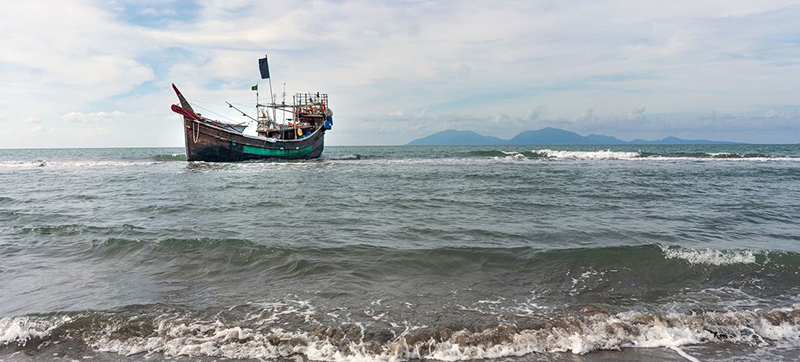Steep increase in deadly boat journeys reflects Rohingyas’ desperation: UNHCR

New York: The steep increase in the number of Rohingya refugees risking their lives to cross the Andaman Sea and Bay of Bengal last year is a reflection of their growing desperation, the UN refugee agency, UNHCR, said on Tuesday.
More than 3,500 desperate Rohingya attempted deadly sea crossings in 39 boats in 2022 – mainly from Myanmar and Bangladesh – UNHCR spokesperson Shabia Mantoo told journalists in Geneva.
“This represents a 360 per cent increase on the year before, when some 700 people made these journeys.”
The UN agency’s latest warning about the situation comes amid an ongoing military crackdown in Myanmar by generals who seized power two years ago, and the continued absence of a comprehensive regional response among coastal South Asian nations to protect refugees’ lives at sea and prevent their exploitation by people smugglers.
Boats ‘adrift for weeks’
“Calls by UNHCR to maritime authorities in the region to rescue and disembark people in distress have been ignored or have gone unheeded with many boats adrift for weeks,” Ms. Mantoo said, adding that without concrete pledges for regional cooperation, more people will die on the high seas.
Latest UNHCR data on the number of deaths resulting from these dangerous journeys indicate that at least 348 people died or went missing at sea in 2022, making it one of the deadliest years since 2014.
The agency noted that 3,040 individuals who made the sea journey disembarked in 2022, primarily in Myanmar, Malaysia, Indonesia and Bangladesh. Nearly 45 per cent were women and children.
Lured by ‘false promises and false hope’
In the last two months of 2022, four boats carrying over 450 Rohingya disembarked in Aceh, Indonesia. One boat carrying more than 100 Rohingya disembarked in Sri Lanka. Another vessel is feared to have sunk in early December with approximately 180 individuals on board, UNHCR reported, while several boats that departed in December “remained at sea as of the end of the year”.
Ms. Mantoo highlighted the vulnerability of the ethnic Rohingya who have made the sea journey, and of the 700,000 who fled military persecution en masse from Myanmar to Bangladesh in 2017. “We’re hearing reports … from Rohingya about this growing sense of desperation and this anxiety about the future and really their hope for security, for protection. Some of them are wanting to reunite with family members, others, their vulnerabilities are being exploited by traffickers or smugglers luring with false promises and false hope.”
Call for regional response
In a call for solidarity among nations impacted by the Rohingyas’ plight, the UNHCR official noted that regional ministers are due to meet next month as part of The Bali Process, to discuss how to combat people smuggling, human trafficking and related transnational crime.
“The movements that we’re talking about today, they are of Rohingya refugees, they are refugees that require international protection,” Ms. Mantoo insisted. “They should not be deported, they should be provided with protection and assistance, so we’re urging States to ensure that they abide by their international legal obligations in disembarking them, rescuing them at sea, disembarking them and then ensuring that they are protected and not returned to situations of danger where they lives may be at risk.”
Reiterating its appeal for more countries to share the “humanitarian responsibility” of the emergency in a more predictable, equitable, and sustainable way, Ms. Mantoo noted that most Rohingya refugees continue to be hosted by Bangladesh.
“The people of Bangladesh, the local communities and the Government have been generous in hosting them and receiving them and providing them with protection and assistance, but they do require more support to ensure that they are able to be supported during their displacement,” she said.



